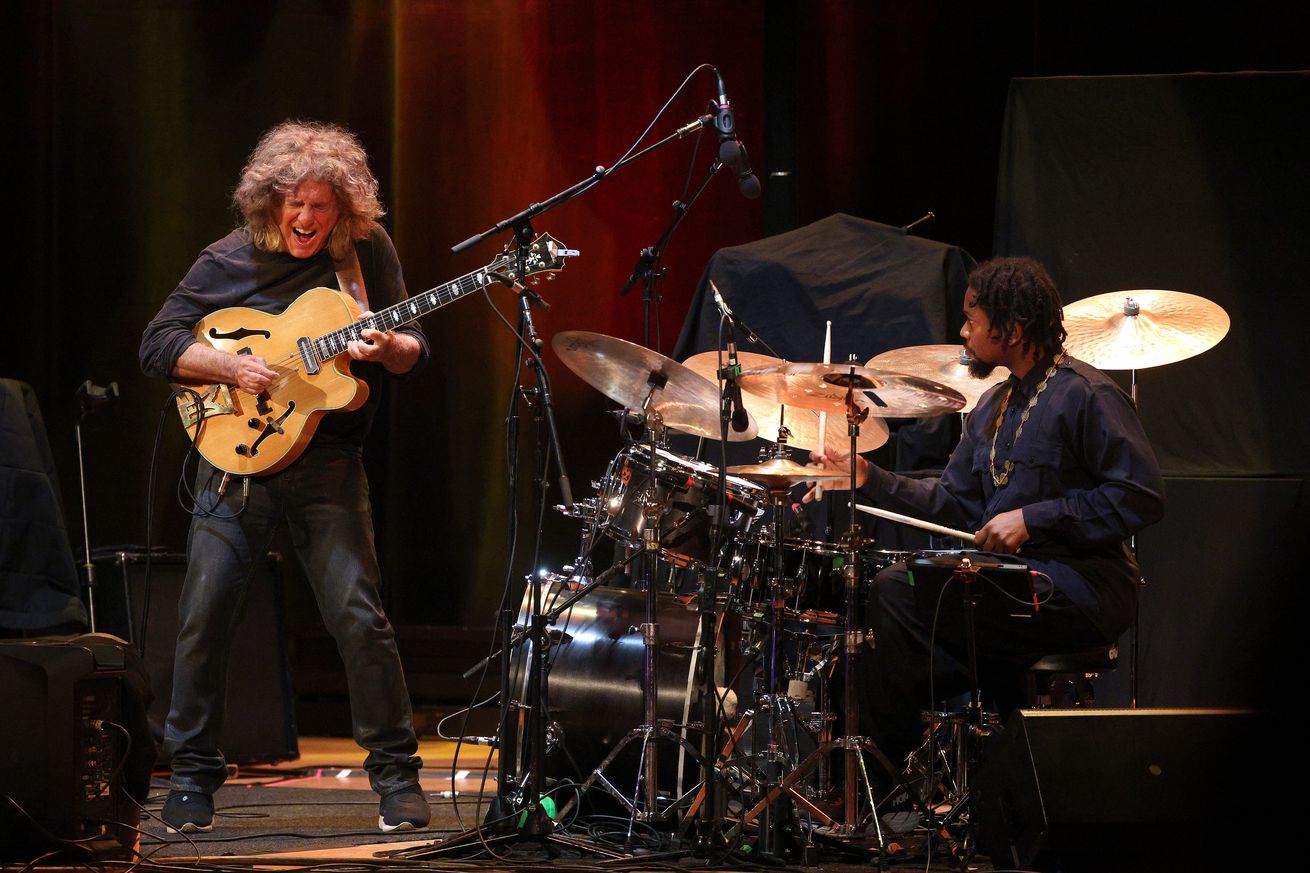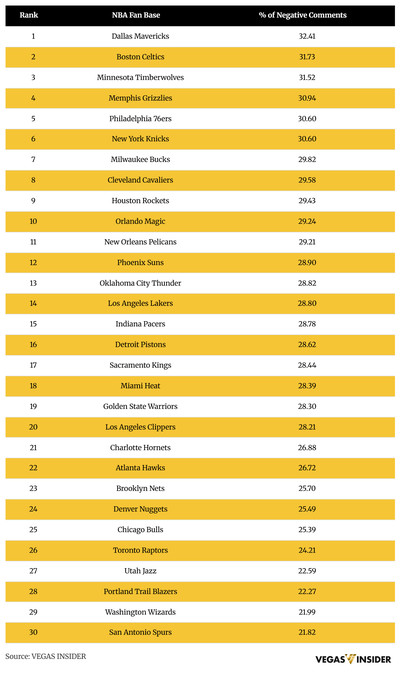
A recent study labeled Mavericks fans the most negative in the league. But what if that’s not negativity — just the sound grief makes when it believed in something?
When I first saw the Vegas Insider report that Dallas Mavericks fans had been surveyed as the most negative in the NBA, my first reaction was to wince. The vibes, as recently as last year’s playoffs, were better than they had been since the 2011 championship.
It was P.J. Washington standing on business against the Clippers in the first round. It was the Mavericks’ defensive cohesion and timely shot-making against the Western Conference champion Oklahoma City Thunder. It was Luka’s step-back three over Rudy Gobert — a capstone moment in franchise history that sent Dallas to its third NBA Finals.
And yes, they lost in five to Boston. But the off-season held promise. What moves around the edges could the front office make to complement a championship-caliber core?

https://www.vegasinsider.com
For a moment, it felt like they were on the right path. Klay Thompson — a Hall of Famer with something to prove — joined the squad. Naji Marshall, “The Knife,” added versatility. Quentin Grimes arrived and impressed. From the moment Luka returned to form in mid-November through late December, the Mavs won 13 of 16 games. At times, they looked like the hottest team in the league.
Then came the unraveling. And no — this isn’t another autopsy of the Luka trade. This isn’t even another critique of Nico Harrison directly, though I haven’t written my last of those.
This is about the survey result — the label slapped on a fanbase as “most negative.”
Calling a fanbase negative misses the nuance. It paints passionate heartbreak as petulance. And it ignores the deeper emotional truth.
Shortly after the Luka trade, I wrote a piece about how the fanbase had fractured into three pieces: those who walked away and may never return… those who say “move on already”… and those of us caught in between, stuck in amber, still driving with the brakes on.
This wasn’t just a playoff flameout. It was the end of an era — interrupted mid-rise.
A commenter named UtahMav dropped an analogy in my recent Captain Kirk analogy post that caught me off guard. At first, I thought he’d wandered into a Reddit thread about a failed relationship. But then I realized — no, this was the analogy:
“My basketball girlfriend has cheated on me, stabbed me in the back and I just can’t go on pretending I trust she’ll make the right decisions going forward. I’ve broken up with her. I’ve been flirting with other girls in the meantime. There’s beauty elsewhere. I’ve spent a good bit of time with one in particular — she’s interesting — but if I’m being honest, in my heart of hearts, I wanted it to work out with my previous long-term partner. We had such a deep connection, made such great memories. I know better than to crawl back to her before she gets her life in order. Major changes need to be made first. And a clear vision of going the right way before I saddle up with her again. It could take a while. Maybe one of these other girls will steal my heart in the meantime.”
That’s not snark. That’s poetry.
It also explains why this fanbase “won” that survey. We didn’t just drop in the standings — we fell through the elevator shaft. Because when you expect an open elevator door to come with the elevator car — when you expect the championship contention path to continue — and instead, you drop like Diana Maldaur’s famous LA Law exit? That’s a very specific kind of suffering.
So yes, when things go well, positivity is easier – which makes unity natural. But why are the Wizards — a franchise mired in mediocrity and worse — just above the Spurs at the bottom of the negativity list? Shouldn’t they be more upset?
No. Because when you’ve been bad long enough, you stop being surprised. You cease expecting better. In the ‘90s, I watched Mavs games on a 12-inch Philco TV, knowing we’d probably lose. But I watched anyway, to see glimpses of development. If your team loses enough, you don’t develop a taste for losing… but you do develop a tolerance for it.
That’s not where Dallas is.
Dallas had Dirk. And after Dirk, we had Luka. The franchise bridged the unbridgeable — two generational players whose legacies overlapped. We watched Luka’s rookie-of-the-year campaign morph into playoff runs, miracle shots, a Finals berth. And then… it all got ripped away.
And again — this isn’t about the trade. It’s about the trauma.
Some of us can’t let go of the hurt. Some of us already have – already humming the breezy Pat Metheny-style soundtrack of “Better Days Ahead.” And others are doing their best to move forward. We have to respect each other across those emotional states.
A few nights ago, I stumbled across a YouTube conversation between jazz guitarist Pat Metheny and Rick Beato. Beato marvels at how Metheny glides effortlessly over difficult chord changes — only for Pat to gently stop him. Paraphrasing the wisdom from Metheny:
“No, it’s not easy. It sounds easy… but I’ve spent a lifetime working on it. Hours and hours. I work at the things I can’t do. And over time, I’ve gotten to the point where I can do them. That’s the only reason it sounds effortless now.”
That moment of gentle pushback from a legend to an admirer registered with me.
Because the people in the “move on already” camp? They might look like they got there effortlessly. Like they rebounded or were never phased start with – and now are ready to talk about spacing and switch schemes again.
But for the rest of us — the ones still caught in amber, still driving with the brakes on — it’s going to take time. And work. We’re going to have to practice healing. Over and over. Let the team show us they’ve changed. See if this isn’t another elevator door opening without a car to step into.
We’re not negative because we love pain.
We’re negative because we loved.
And maybe, just maybe, we’ll find our way back to melody. But not before we fight our way through some tough chords.